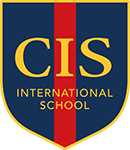

Cambridge programs and qualifications define the global standard of international education. Cambridge educational programs are based on the combination of academic background and the latest research in the field of education. They are created by highly professional and qualified specialists.
Cambridge programs have deserved recognition of millions of students and their parents all over the world. That is why Cambridge program-based schools (more than 10 000) work in 160 countries across 9 regions: North America, Latin America, UK & Europe, Sub-Saharan Africa, Middle East & North Africa, South Asia, East Asia, Southeast Asia & Pacific and Pakistan.
Cambridge program brings up independent, thoughtful, responsible and innovative citizens of the global community. And nearly 1 000 000 students chose this way annually.
The Cambridge program is designed for children from 5 to 19 years old and consists of 5 stages, each of which continues to develop the knowledge and skills of the previous ones.
Stages 1 and 2: Primary School (Cambridge Primary Key Stage 1&2) for children aged 5-11. Compulsory subjects are English, Mathematics and Natural Sciences. Information technologies and Global Perspectives within these stages distinguish the Cambridge Educational Program from other international programs.
Stage 3: Secondary School (Cambridge Lower Secondary Key Stage 3) for children aged 11-14. Compulsory subjects are English, Mathematics and Natural Sciences. Information technologies and Global Perspectives within these stages distinguish the Cambridge Educational Program from other international programs.
Stage 4: Secondary School (Cambridge Upper Secondary Key Stage 4 (IGCSE)) for children aged 14-16. Currently, it is the most popular international qualification for this age. This is a two-year program, for which a student can choose 6-7 subjects for deeper study. At the end of the program, student must pass the IGCSE exams. The main subjects for the exams are English, Mathematics, Biology, Chemistry and Physics. Three or four exams can be taken in the following subjects: Geography, History, Spanish, Russian, Economics, Computer Science. It also offers 1 additional course in Mathematics, or Native Language. The result of completing the stage is the receipt of an International Certificate of Secondary Education.
Stage 5: Cambridge Advanced (A/AS level) for children aged 16-19 preparing for admission to higher education. The two-year program is based on a combination of in-depth study of several subjects and the development of independent thinking skills. At the end of the program, student must pass the A level exams. The A Level exam is highly specialized, and students usually take 3 subjects.
Cambridge AS and A Levels are taken in more than 130 countries annually.
CIS International School has received the status of Cambridge International School and can take Cambridge International Exams and use Cambridge International programs such as Cambridge Primary and Cambridge Secondary, including Cambridge IGCSE and Cambridge AS/A level exams. The school prepares graduates with diplomas of secondary education Cambridge IGCSE and Cambridge International AS & A level, which is recognized by universities in the USA, Great Britain, Australia, Canada, and other countries (about 140 in total).
В CIS International School all lessons (according to the Cambridge program) and additional classes are taught in English. The teaching is conducted by experienced and qualified native–speaking teachers from countries such as the UK, USA, Canada, Australia, South Africa and others. Each class is assigned one foreign teacher and one Russian teacher.
All teaching at CIS International School takes place in English.
Each class has a qualified and experienced homeroom teacher from the UK or other countries of the English-speaking world: USA, Canada, Australia, South Africa, and other countries.
CIS International School employs only teachers who have the appropriate qualifications to work in the UK or abroad, combined with at least 3 years of teaching experience in the appropriate age group or subject.
Average score on exams IGCSE
in the UK - 79.1% .
in CIS International School - 72.1%
Average score for English Language
in the UK - 80.9% .
in CIS International School - 87,5%.
Average score for Mathematics
in the UK - 77.9% .
in CIS International School - 93,7% .
% of A*-C
British National Curriculum
Cambridge Primary
Cambridge Secondary
Cambridge AS & A Level
CIS provides the option for 7 to 18 year olds who speak Russian as a first language to study the Russian State curriculum in parallel to the Cambridge International programme.
While we may be an international school, we believe it is important for students to have the option to study the Russian State curriculum.